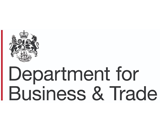Password phrases are better than passwords
One of the main reasons scams and rip-offs are so prevalent in social media, is ease with which scammers and con-men can get hold of our passwords and scam us.
We tend to use the same passwords on several accounts, or use simple passwords made up of our spouse’s or children’s names with anniversary or birth dates. We even use the same security questions such as “What‘s your mother’s maiden name?” or “What’s your was your first pet called?”.
The problem with behaving this way is that because most of this information is already lying around our favourite social networks, it’s too easy for scammers to guess our passwords and get access to our accounts without having to use special software to get them. Most of us have this information posted all over our profiles, because it’s hard to avoid mentioning family birth days and anniversaries, or avoid using family names when chatting and posting to friends and family on Facebook or twitter.
So don’t use personal information posted on your social media profiles, when making up passwords to access your accounts.
The best you can do is to make your account more difficult to hack than the next person’s account, in the hope that scammers will move on to easier targets.
A good way to do this is to use stronger passwords made up of a long string of letters and numbers. But these are hard to remember and still vulnerable to password cracking tools, which use brute force to try every possible key or password combination until they succeed.
However, password phrases are much better than passwords, because they’re harder to hack but easier to remember. This is because they contain words, numbers, punctuation and spaces of more than 15 characters, and the spaces confound the vast majority of brute force cracking tools used to working on shorter single-string passwords that don’t have spaces in them.
Password phrases such as:
“4 score & 7 years ago, our fathers...” or “4 & twenty blackbirds: baked in a pie!”
are much more memorable and infinitely harder to crack than:
“john04071970” or “jxr4e29q”
Password phrases can take up to 2000 years to crack, so most scammers using cracking tools will simply move on to softer targets.






